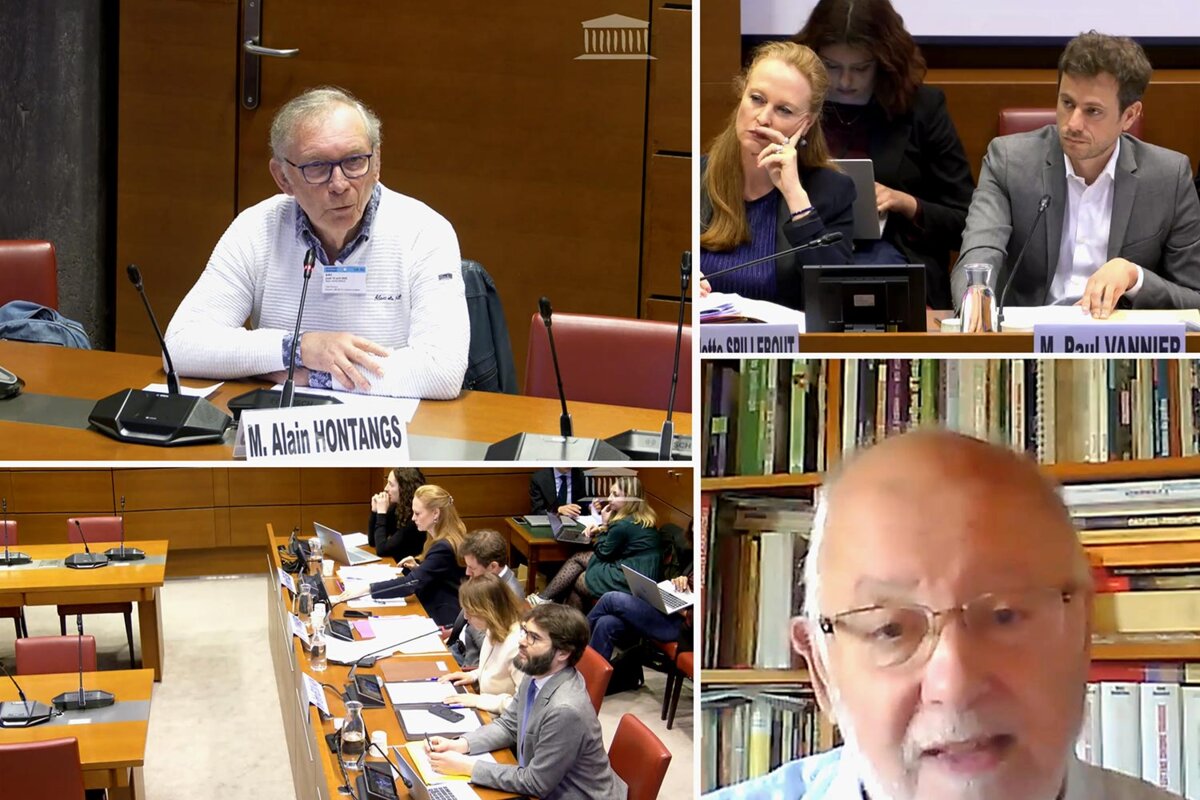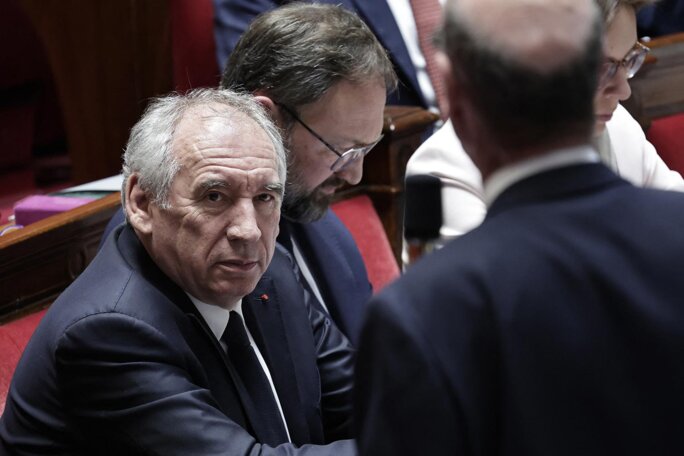French Prime Minister François Bayrou this week became increasingly embroiled in a scandal over alleged child abuse involving rape, sexual assault and physical cruelty, at the private Catholic school Notre-Dame-de-Bétharram situated in the village of Bétharram in Bayrou’s political fiefdom in south-west France.
By the beginning of this month, a total of 200 formal complaints had been filed with the public prosecution services against the school and its staff by former boy pupils at the school, many of whom were boarders, concerning a period dating from the 1950s and up until 2010.
Bayrou, 73, mayor of the town of Pau, who was a Member of Parliament (MP) for the surrounding area from 1986 to 2012, who sat for 26 years on the council of the local Pyrénées-Atlantiques département (county), who served as education minister from 1993 to 1997, has claimed he was unaware of the allegations circulating in the 1990s of abuse at the school, where his wife then taught and where several of his children were pupils.
“I maintain that I was never informed about anything to do with violence [at the school], or a fortiori sexual violence, never,” Bayrou told parliament in February, despite evidence to the contrary as reported by Mediapart.
For three decades, beginning in the 1950s, the school largely escaped investigation over the numerous allegations of abuse, but one notable exception concerned the arrest in 1998 of Pierre Silviet-Carricart, a priest who was then director of the prestigious school where he taught philosophy. Silviet-Carricart was accused of raping a ten-year-old boarder at the school in the late 1980s.
The priest was placed under investigation and imprisoned, but was intriguingly released less than two weeks later, when he no less intriguingly was able to leave France for Italy and settle at the headquarters of his congregation in the Vatican. In 2000 he committed suicide in the Italian capital, drowning in the river Tiber, after learning of a new investigation opened into his alleged sexual assault of another child pupil at Notre-Dame-de-Bétharram. The priest was subsequently buried close to Bétharram, and Bayrou’s wife Élisabeth, who taught catechism classes at the school, attended his funeral ceremony.
Alain Hontangs, now retired, was the senior gendarmerie detective in charge of the investigations into Silviet-Carricart. Hontangs earlier this year told both French television channel TF1 and Mediapart how the examining magistrate leading the judicial investigation into Silviet-Carricart, Judge Christian Mirande, had told him that Bayrou, contrary to his repeated denials of being aware at the time of abuse at the school, had intervened in the case.
This week, Hontangs repeated his account, under oath, before a parliamentary committee investigating the events at Notre-Dame de Bétharram, when he also provided new evidence.
He read out to the committee’s MPs a phone text message he received in February from Robert Matrassou, a retired former gendarmerie colleague. Matrassou sent the message after Hontangs had made his first public comments about the handling of the case earlier this year. “I knew about it,” wrote Matrassou about Bayrou’s alleged intervention in the investigation into Silviet-Carricart, “Mr Mirande confirmed it to me at the time”.
In an interview with Mediapart on Friday, Matrassou, who retired from the gendarmerie with the rank of major, confirmed that he was made aware of Bayrou's role, and also said he would testify before the parliamentary committee if asked.

Enlargement : Illustration 1

A detective with one of the gendarmerie’s regional investigation branches – the “sections de recherches” – in the town of Pau, Hontangs had questioned Silviet-Carricart about the alleged rape while he was held in custody for 36 hours. The gendarme then accompanied the priest to the law courts in Pau on May 28th 1998 with a view to him being presented before Judge Mirande.
“Christian Mirande was waiting for me in front of the door to his office,” Hontangs told the parliamentary committee on Thursday. “He told me ‘the presentation is held up, the public prosecutor wants to see the case file. There’s been an intervention from Mr Bayrou.’ Full stop.” Questioned by the committee’s rapporteurs, Violette Spillebout (an MP with Emmanuel Macron’s centre-right Renaissance party, to which the French prime minister’s Modem party is allied) and Paul Vannier (an MP with the radical-left La France Insoumise party), Hontangs spoke of his “surprise” upon learning of the public prosecutor’s demand, which he said he had “never” been witness to in other cases.
Also questioned under oath on Thursday, in a video link from his home in the south-west Béarn region, retired magistrate Christian Mirande said he did not remember speaking about an intervention by Bayrou, but that he regarded the account as credible, a comment he had previously made to Mediapart. “I know the two gendarmes [Hontangs and Matrassou] very well, I remain fully confident in them,” he told the MPs. “If they say that, it means that it must have happened.” He said he “well” remembered the request from the prosecutor to delay reception of Father Silviet-Carricat, adding that he also had been “a little surprised” by the move. “It was the first time that it had happened,” he added.
Mirande told the committee that the “social status of Father Carricart”, who he said held “a social position known to local notables”, may be the explanation of the unusual treatment of his case. Lawyer Serge Legrand, a high-profile lawyer at the Pau courthouse, headed up a support group for the priest, and was a fervent advocate of the Bétharram school. Legrand was also close to Bayrou and an active supporter of the latter’s (now dissolved) centrist party, the UDF. Within this political context “one could have feared interference from different notables, even Mr. Bayrou”, said Mirande.

Enlargement : Illustration 2

The parliamentary committee questioned Mirande at length about the conditions of a meeting he had with Bayrou in 1998 when the Silviet-Carricart case was discussed. When the first revelations of that meeting emerged earlier this year, Bayrou initially denied it had happened before finally admitting it did, but claiming it was a chance encounter during a walk in the village where the two men were neighbours.
“It wasn’t at all by chance,” Mirande, speaking under oath, told the committee, “he came to my home”. Mirande recalled a discussion that lasted “a few hours”, occurring in a context when “local and national media had largely covered the content of the accusations.”
“He could not manage to believe that Carricart, who he appeared to know, could have committed these acts,” added Mirande, who said Bayrou had “great concern” for his son, a pupil at the school. “He spoke to me only about his son. He couldn’t believe the reality of these events. He kept repeating, I well remember, ‘it’s incredible, it’s incredible’.”
Mirande also spoke of the circumstances surrounding the release from detention of Silviet-Carricart, just days after he had been placed under investigation. That decision was made by a court in Pau upon the recommendation of the local public prosecution services. “I was outraged at the news,” recalled Mirande. “It’s a case that leaves me with a lot of bitterness. The management of this affair by the justice system was disastrous.”
According to Mirande, the priest’s exile in Rome prevented “the possibility of complementary investigations”.
Hontangs said that had the priest been prosecuted, it could have provided an “opening” for other victims to come forward. “How can you expect people to speak up when one knows that the justice system doesn’t appear to believe the first victim?”, he asked, adding that if Silviet-Carricart had been brought to trial, “we might not have lost ten or 20 years”.
At the end of the session on Thursday, committee rapporteur Paul Vannier concluded: "For me, François Bayrou has lied."
In an interview with the Catholic daily La Croix, published on Thursday, French education minister (and former prime minister) Élisabeth Borne announced that her services are to carry out an investigation into the now renamed educational institution in the village of Bétharram.
Meanwhile François Bayrou is due to be questioned by the parliamentary committee on May 14th.
On Friday, Mediapart questioned the prime minister on camera as he inaugurated a wine and cheese fair in the town of Coulommiers, east of Paris (see the video interview here). Asked whether Hontangs and Mirande were lying in their declarations given under oath to the parliamentary committee on Thursday, Bayrou said: “Well, judges and gendarmes, you know, makes mistakes like all the others.”
“Me, I’m telling you that in all my life, never have I intervened in any judicial case. And if someone can come to see me saying ‘you intervened, I was there’, in that case, let them come along,” he said.
“They say ‘someone said that someone was told that’. That has nothing to do with [the truth],” he added.
-------------------------
- The original French version of this report can be found here.
English version by Graham Tearse


